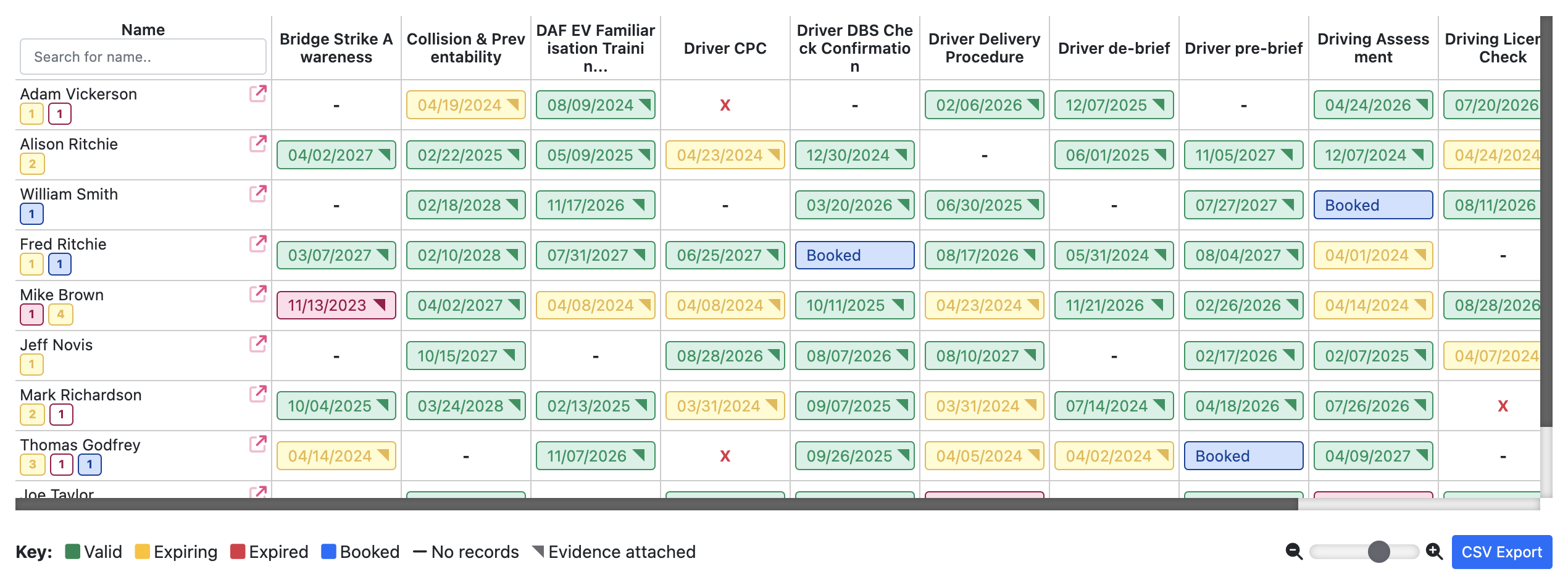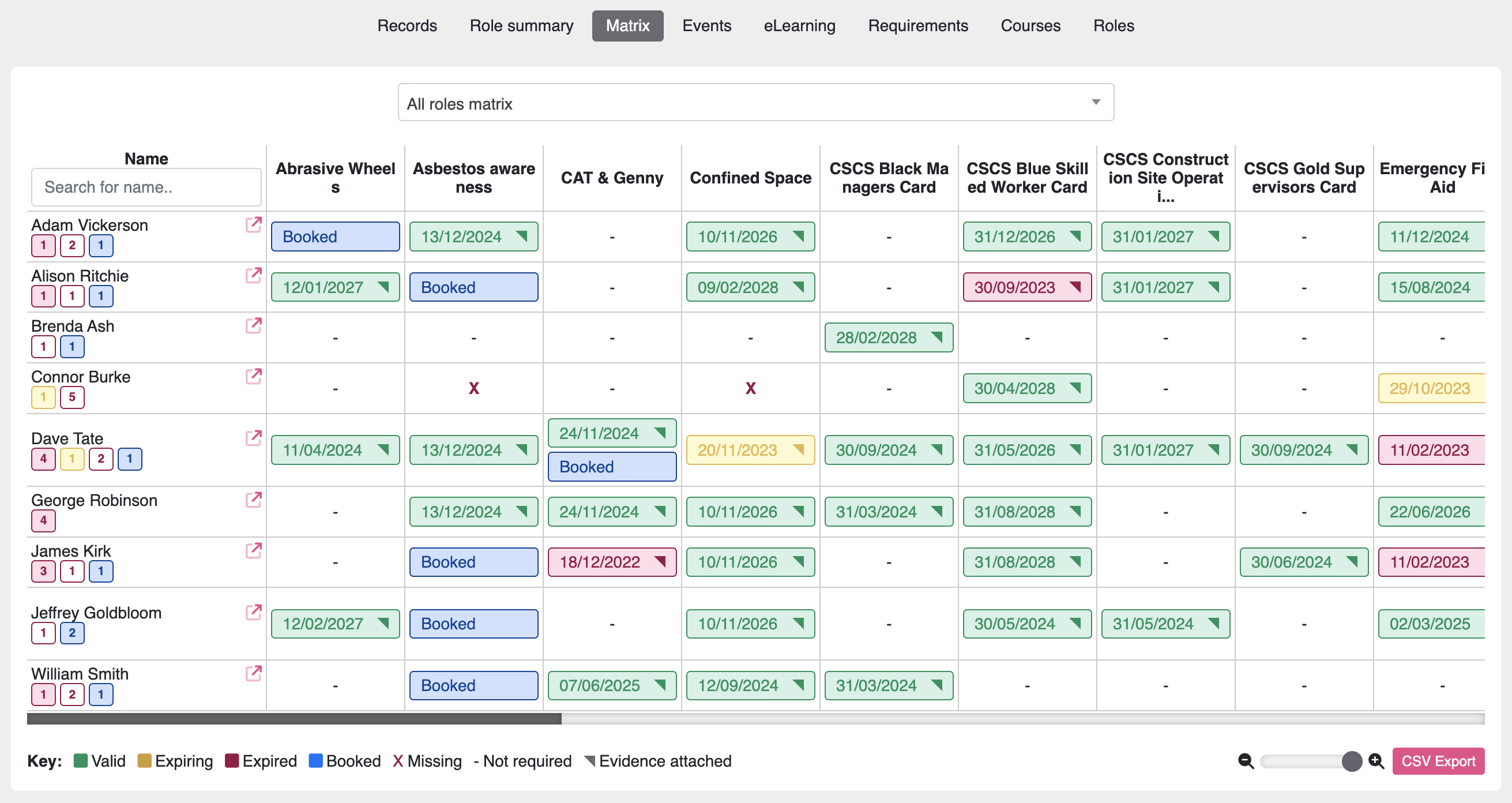A Costly Monday Morning
It is Monday morning at a busy construction site. The team has prepared everything, completed the equipment checks, and is waiting for the client to begin the work. Suddenly, a site supervisor discovers that certification renewals for the safety cards of two crane operators have expired over the weekend. Within minutes, operations grind to a halt. Replacement staff are not immediately available, deadlines are pushed back, and penalties loom.
This is not a rare occurrence. Compliance managers across industries often share stories of projects delayed or audits failed because one essential certification slipped through the cracks. What makes it worse is that these problems are entirely preventable. By automating certification renewals and training expiry alerts, organisations can replace stress and downtime with foresight and control.
Table of Contents
- A Costly Monday Morning
- What Are Certification Renewals & Training Expiry Alerts?
- Why Does This Matter So Much?
- Which Industries Face the Greatest Risk?
- Best Practices for Automating Certification Renewals and Training Alerts
- Benefits of Doing Certification Renewals and Training Alerts
- Example Automated Workflow
- Pitfalls to Avoid
- How Moralbox Simplifies Certification Renewal Tracking
- Conclusion
- FAQs
- References
What Are Certification Renewals & Training Expiry Alerts?
Certification renewals are the process of extending the validity of a qualification, license, or training record before it expires. This may involve refresher training, exams, or updating documentation to ensure compliance. Training expiry alerts are automated notifications sent to employees, managers, and compliance officers to remind them when a deadline is approaching.
Instead of relying on memory or spreadsheets, an automated system tracks dates, delivers alerts, and escalates when deadlines are missed.
Why Does This Matter So Much?
Although certification renewal may appear like routine administration, failing to renew on time can result in severe consequences.
- Operational disruption: A single expired certification can halt entire operations.
- Legal and regulatory risk: Regulators impose penalties for expired certifications, and appeals rarely succeed. For example, the CCMC allows late renewal requests only within 90 days, and notes that “no receipt of notification” is not an acceptable reason (CCMC, 2024).
- Financial impact: On average, organisations spend 4,300 hours annually chasing manual compliance tasks such as renewals and audits (Drata, 2023). Additionally, refresher training is often shorter and cheaper than retaking a full course. For instance, in construction, the Site Manager Safety Training Scheme (SMSTS) is a five-day course, but its two-day refresher (SMSTSR) must be completed before the expiry of the original course. If missed, managers must repeat the entire five-day course, which not only incurs additional training fees but also requires three extra days off-site. This highlights how proactive renewal tracking directly prevents productivity and financial losses.
- Reputation loss: Auditors and clients interpret expired certifications as signs of weak governance, which damages trust.

Thus, automation and certification renewal are not just convenient; it is a shield against fines, downtime, and reputational harm.
Which Industries Face the Greatest Risk?
While nearly every industry benefits, the following sectors face especially high stakes when certifications lapse:
| Industry | Key Certifications / Training at Risk | Risks if Lapse Occurs |
|---|---|---|
| Healthcare & Pharma | Medical licenses, clinical certifications, safety protocols | Unlicensed care, regulatory action, malpractice exposure |
| Construction / Engineering | Safety certifications (CSCS, scaffolding, forklift), structural engineering licenses | Site shutdowns, fines, project delays |
| Energy & Utilities / Manufacturing | Accidents, environmental violations, insurance issues | Compliance training, data protection certification, and AML licensing |
| Aviation & Transport | Pilot licences, maintenance certifications, safety training | Grounded flights, regulatory nonconformities |
| Finance & Corporate / Insurance | Compliance training, data protection certification, AML licensing | Legal penalties, data breaches, loss of trust |
Because failure in such sectors directly affects safety, regulatory standing, or huge revenue flows, implementing robust certification renewal automation shouldn’t be an option but must be foundational.
Best Practices for Automating Certification Renewals and Training Alerts
To begin with, centralise all records within a single, reliable system. Having training and certification data scattered across spreadsheets or folders often leads to errors and confusion. By consolidating everything in one place, organisations make audits simpler, ensure accuracy, and gain a clear overview of compliance at any moment.
Next, it is essential to layer notifications to avoid reliance on a single reminder. Traditionally, this could mean setting alerts 90, 30, and 7 days before expiry. However, in Moralbox, reminders start 60 days before expiry and continue weekly through automated email summaries, maintaining visibility without overwhelming users. The dashboard and matrix further support this by providing live, up-to-date status tracking for every certificate.
Furthermore, organisations should assign responsibility clearly between employees and managers. Shared accountability helps ensure that no one assumes someone else is handling renewals, greatly reducing the chance of missed deadlines.
In addition, it is vital to automate escalations when deadlines pass unnoticed. By automatically alerting higher management, the system ensures that non-compliance is immediately visible and addressed before it impacts operations.
Finally, teams should continuously monitor dashboards that indicate whether employees are “compliant,” “at risk,” or “overdue.” These visual insights give managers the ability to act proactively, schedule training in advance, and maintain uninterrupted operations across the organisation.
Benefits of Doing Certification Renewals and Training Alerts
The organisation benefits when automation and certification renewal are implemented effectively:
- No surprises: Projects run without sudden stoppages.
- Audit Readiness: Regulators Require Up-to-Date Records.
- Efficiency: Admin teams save hundreds of hours.
- Accountability: Everyone knows their role in compliance.
- Trustworthiness: Clients view the company as reliable.
Evidence supports these benefits: one technology firm reduced its certification expiration rate from 15% to 7% in six months using automation (KPI Depot, 2023).
Moreover, with solutions like Moralbox, organisations can achieve these gains seamlessly. Moralbox integrates expiry alerts, escalation rules, and dashboards, transforming renewal tracking from manual firefighting into a proactive compliance process.
Example Automated Workflow
- Certification is logged when training is complete.
- Expiry date calculated and reminders scheduled.
- Alerts sent at 90, 30, and 7 days before expiry.
- Escalation triggered if deadlines pass.
- Renewal logged with a new expiry date.
- Dashboard updates compliance status.
Pitfalls to Avoid
- Assuming booking training equals renewal. Only completed and logged certifications count.
- Ignoring grace periods from certifying bodies. For example, the CCMC permits formal late renewal requests within 90 days of expiry but will deny any request submitted after 30 days without review (CCMC, 2024).
- Overcomplicating escalation paths delays action.
- Neglecting to maintain audit logs for proof of compliance.
How Moralbox Simplifies Certification Renewal Tracking
At Moralbox, certification renewals and training expiry alerts are not secondary features; they are a core strength. The platform helps organisations in regulated industries eliminate the risk of missed deadlines, costly downtime, and compliance failures.
Key features designed to support this include:
- The Moralbox Matrix offers a clear visual snapshot of all certifications across individuals, teams, and departments.
- Automated weekly email reminders that notify managers and employees of upcoming expiries without manual effort.
- Hierarchical access and collaboration tools, enabling individuals, line managers, and the head office to act together in real time.
- The individual Workpass gives every employee ownership of their own certifications.
- The Refresher Training Planning Report, which identifies upcoming expiries and potential cost savings. For example, where several certifications are due to expire within months, the report highlights opportunities to book block refresher sessions, saving money and preventing lost productivity.
- Strategic scheduling insights, helping managers plan renewals around project deadlines to avoid workforce shortages or on-site stoppages.

This focus has earned Moralbox the trust of customers across construction, healthcare, manufacturing, transport, and corporate sectors, where lapses are not an option. By embedding visibility and accountability into daily operations, organisations report smoother audits, stronger client confidence, and far less time spent chasing spreadsheets or firefighting overdue certifications.
Conclusion
Certification renewals and training expiry alerts may seem like administrative details, but as seen throughout this blog, they underpin operational continuity, compliance integrity, and workforce readiness. An effective automated system not only prevents lapses but also delivers measurable savings through smarter refresher planning, improved coordination, and reduced downtime.
Across industries, from healthcare and construction to aviation and finance, automation transforms renewal tracking from a reactive chore into a proactive compliance advantage.
👉 For organisations ready to strengthen renewal management and plan with confidence, Moralbox provides an integrated, trusted solution. Book a Free Discovery Call with our Experts today to see how it can streamline your compliance operations.
FAQs
How far in advance should alerts be sent?
Best practice is at least three intervals: 90, 30, and 7 days before expiry; though some industries also add a 180-day planning alert.
Can alerts link to training platforms?
Yes, integration with LMS ensures alerts trigger training booking or renewal modules automatically.
What’s the ROI of automating renewals?
Savings come from avoided downtime, reduced admin hours, lower regulatory risk, and reputational gains. According to Drata (2023), organisations report reclaiming approximately 4,300 staff hours annually through compliance automation.
References
CCMC (2024) Certification Guide Renewal Update. Available at: https://ccmcertification.org/sites/ccmc/files/docs/2024/CCMC-23-Cert-Guide-Renewal-Update%20FINAL_2.pdf(Accessed: 8 October 2025).
Drata (2023) Compliance Trends Report 2023. Available at: https://drata.com/resources/reports/compliance-trends-2023 (Accessed: 8 October 2025).
KPI Depot (2023) Certification Expiration Rate KPI. Available at: https://kpidepot.com/kpi/certification-expiration-rate (Accessed: 3 October 2025).

Ananya is a Marketing Executive at Moralbox, passionate about creating content that connects learning with business impact.


